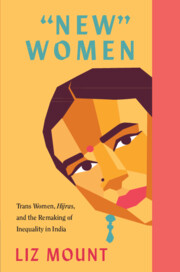
- Publisher:
- Cambridge University Press
- Online publication date:
- November 2024
- Print publication year:
- 2025
- Online ISBN:
- 9781009343428
- Subjects:
- Sociology of Gender, Area Studies, South Asian Government, Politics and Policy, Asian Studies, Politics and International Relations, Sociology

